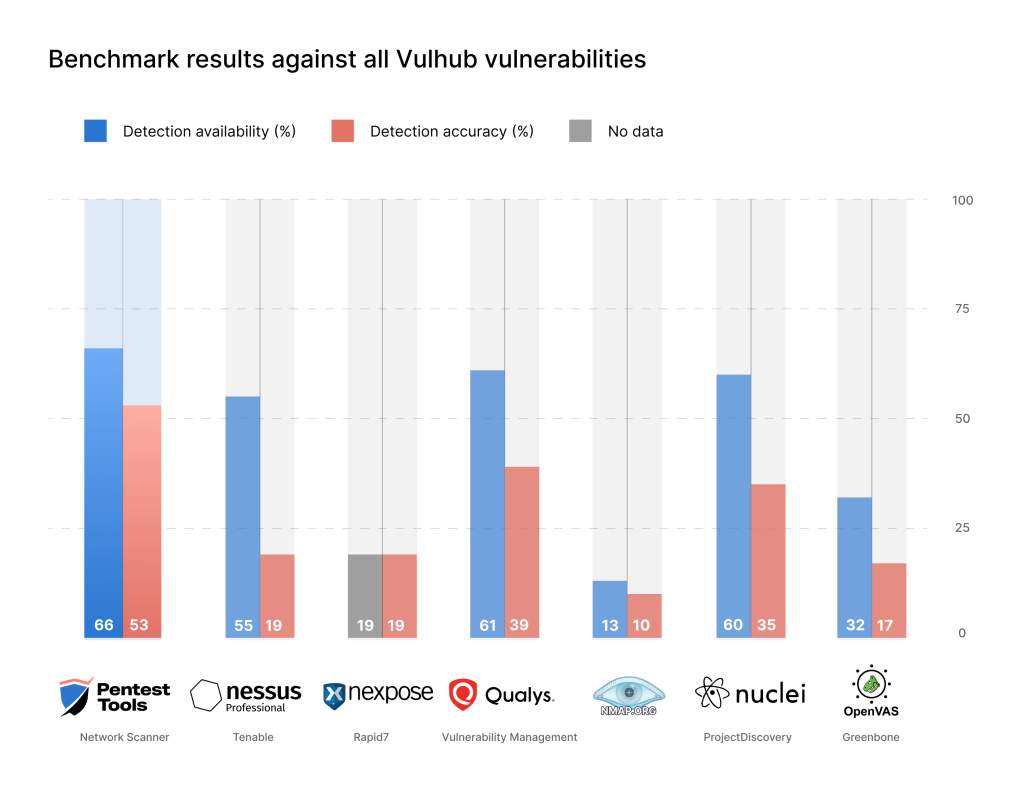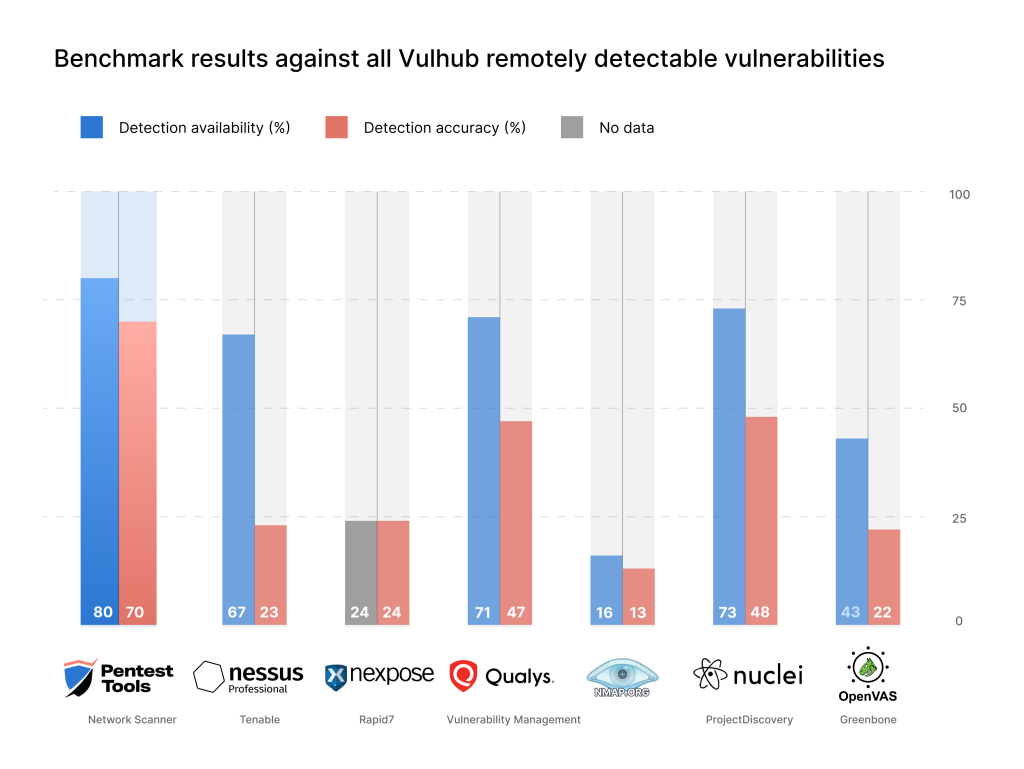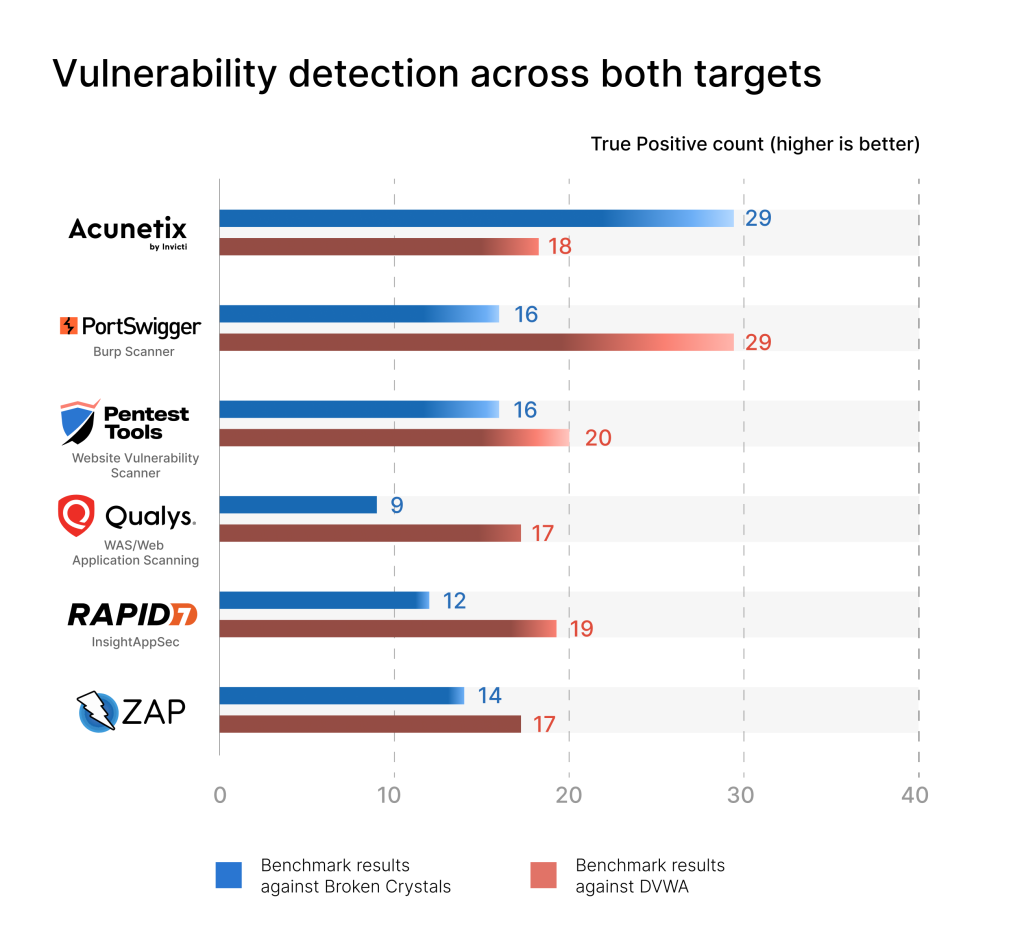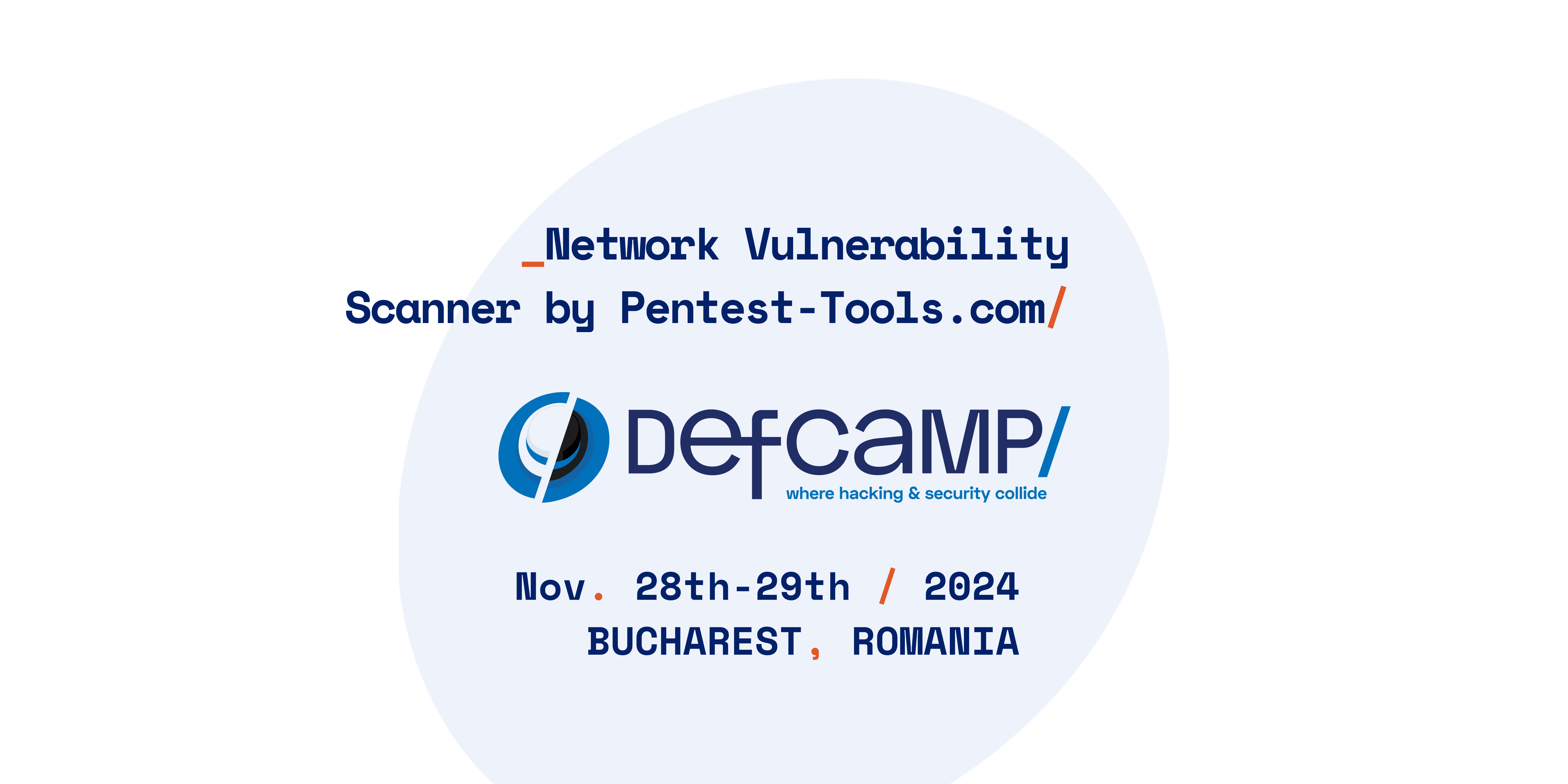Network vulnerability scanners benchmark 2024
- 167 vulnerable environments deployed
- 17 instances used in the testing setup
- 7 popular network scanners evaluated
- 128 environments with remotely detectable CVEs
- 39 environments with non-remotely detectable CVEs
- 2 criteria: detection availability and accuracy
Why bother comparing the top network scanners
Vendor promises often don’t reflect real-world performance. Our benchmark tests those claims, delivering cold, hard data so you can stop guessing and start securing. Get a real look at how these network scanners perform under pressure.
How we tested the 7 network scanners
Test targets: we tested the most popular network vulnerability scanners against 167 vulnerable environments which packed a broad range of CVEs attached to vulnerabilities that still lurk in many infrastructures across the world.
Tools lineup: seven popular scanners, both open-source and commercial, were put head-to-head and evaluated on:
- True positives: Did they catch real security threats?
- False negatives: What did they miss entirely?
The showdown: which tool came out on top?
The top tools excelled at identifying vulnerabilities, but some clear standouts emerged in our testing.
While most scanners held their own in finding vulnerabilities, a few standout winners truly stole the spotlight.
Overall detection accuracy

The Pentest-Tools.com Network Vulnerability Scanner sets the standard with steady, reliable performance across all tested environments.
Qualys Vulnerability Management claims 2nd place, with ProjectDiscovery Nuclei securing 3rd, while Tenable’s Nessus – placed 4th – reveals a sharp contrast between its promised availability (55.09%) and actual accuracy (18.56%).
Rapid7’s Nexpose is the standout exception, since we were unable to differentiate between local and remote checks within its vulnerability database.
Remote detection accuracy

This benchmark focuses on remote detections because they offer a realistic view of real-world threats and scanner effectiveness. From this angle, the Pentest-Tools.com Network Scanner emerges as the go-to tool for spotting remotely exploitable CVEs, aligning well with real-world attack scenarios.
Placed second, Nuclei outshines Qualys in finding remotely exploitable vulnerabilities, while most commercial scanners show similar detection coverage (except for Nexpose’s particular situation), validating their comprehensive scanning claims.
But do these scanners work IRL?
See the full results and find out which network scanner you should trust to defend your infrastructure – and why.
Download the full benchmark for a deep dive into each scanner’s performance, along with insights on how they’ll hold up in your real-world environment.
Website vulnerability scanners benchmark 2024
- 6 popular website scanners evaluated
- 2 independent testbeds – DVWA & Broken Crystals
- 3 criteria: true positives, false positives, false negatives
- 107 vulnerable paths tested
Configuration: each scanner was manually configured for maximum crawl coverage and enabled to use all available vulnerability detections.
Why bother comparing the top web app scanners?
Our benchmark cuts through the noise with hard data, so you can pick the web app scanner that truly earns its place in your security arsenal.
How we tested
Test targets: we went beyond the basics, using two powerful testbeds:
Broken Crystals: think of this as a modern web app battlefield—REST and GraphQL APIs, XSS, SQLi, JWT flaws, and more.
DVWA (Damn Vulnerable Web Application): the classic, built to throw common web app vulnerabilities right in the scanner’s face.
Tools lineup: six popular scanners got thrown into the ring and measured to discover:
- True positives: Did they catch the real issues?
- False positives: Did they cry wolf too often?
- False negatives: Did they miss the obvious?
The showdown: who came out on top?
Overall detection accuracy
Most scanners did a solid job finding vulnerabilities, but some clear winners emerged.

Broken Crystals performance
- Invicti Acunetix crushed it with the best detection rate.
- The Pentest-Tools.com Website Scanner and Burp Suite tied for second, holding their own.
- ZAP took fourth, outperforming both Qualys and Rapid7 InsightAppSec.
DVWA performance
- Burp Suite led the charge, spotting 29 out of 39 vulnerabilities.
- The Pentest-Tools.com Website Scanner followed closely, with Rapid7 InsightAppSec and Acunetix battling for third and fourth.
False positives: the (not so) silent killer
While most tools did okay, ZAP stumbled hard on DVWA, throwing out 88 false SQL injection alerts. Not great when you’re looking for precision.
But do these scanners work IRL?
Sure, benchmarks are cool, but things get messy when you step outside the lab.
Download the full benchmark to see which web app scanner you should trust to truly reflect the exploitable vulnerabilities in your web apps’ attack surface.
